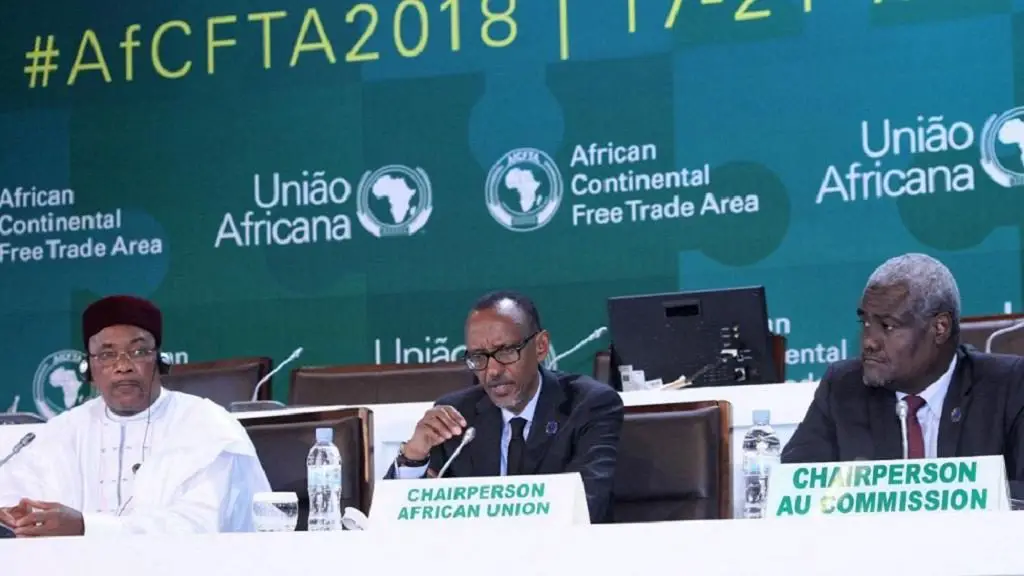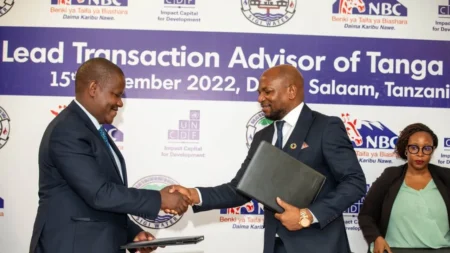Members of East Africa`s private sector including small and medium size enterprises are preparing to exploit the over Tshs.2.7 trillion ($1.2 billion) continental market after endorsement of African Continental Free Trade Area (AfCTA).
At their meeting in Arusha on Thursday 25th April,2019, members of East Africa Business Council (EABC) who teamed up with United Nations Economic Commission for Africa (ECA) said they foresee large potential gains from the AfCFTA, including an increase in intra-African exports of Eastern Africa by nearly Tshs.2.3 trillion ($1 billion) and job creation of 0.5 to 1.9 million
`Together African economies have a collective gross domestic product (GDP) of $2.5 trillion, making it the 8th largest economy in the world. That makes the continent much more attractive to investment, both from within and from outside the continent, ` said Andrew Mold, the acting Director of ECA in Eastern Africa.`This should encourage business people to take advantage of AfCFTA and make the investments necessary to sustain economic growth and create employment, ` Mold added.
EABC Chairman, Nick Nesbitt emphasized the importance of the continent having a clear vision to put an end to the fragmentation of the internal market. `I really applaud everybody who has been involved in creating the AfCFTA because their vision is the one of pan-Africanism,` Nesbitt said. `It is something our founding fathers aspired to. Our thanks to ECA for being at forefront of this conversation and pushing the agenda forward so that the continent becomes a single economic trading bloc, ` he added.
Speaking at the same gathering, Director General of Customs and Trade at the East African Community Secretariat, Kenneth Bagamuhunda cited the experience of regional economic communities as the building blocks for the AfCFTA.
`The AfCFTA should build on what has already been achieved in regional negotiations like the tripartite free trade area, as well as within our respective regional blocks, Bagamuhunda said. He also highlighted governments need to set a conducive environment for the successful implementation of AfCFTA.
The AfCFTA was signed in March 2018, at a historic meeting of the African Union in Kigali. 52 of 55 African Union member states have so far signed the AfCFTA (Eritrea, Nigeria and Benin are yet to sign the agreement) , 22 countries have ratified the agreement, which was the minimum number required for it to enter into force. Gambia`s parliament approved the AfCFTA on Tuesday 23rd April,2019, becoming the 22nd nation to do so, and effectively meeting the minimum threshold for the agreement to come into force.
The AfCFTA seeks to create the largest trade zone in the world, increase intra-African trade by 52% by the year 2022 and remove tariffs on 90% of goods.











